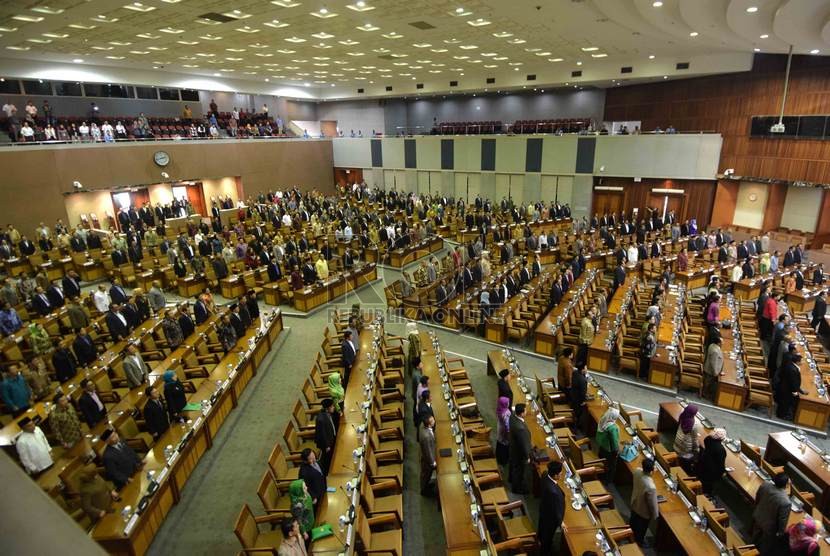REPUBLIKA.CO.ID, JAKARTA - The legal aid institute Lembaga Bantuan Hukum (LBH) has lodged a judicial review over Article 245 of Law Number 17 of 2014 (MD3 Law) on its belief that it offers impunity to the parliament members.
"The article contains a clause that enables special treatment to be given to members of the House of Representatives (DPR) during any criminal procedure," LBH public lawyer Ichsan Zikry stated before the start of the case proceedings at the Constitutional Court here on Wednesday.
According to Article 245, paragraph 1 of Law Number 17 of 2014 on People's Consultative Assembly (MPR), House of Representatives (DPR) and Regional Legislative Assembly (DPRD) and the Regional Representatives Council (DPD), the summoning and questioning of a DPR member allegedly involved in a crime must be done upon prior approval of the "Mahkamah Kehormatan Dewan" (DPR Honorary Council).
Paragraph 2 states that "if the Mahkamah fails to produce the written approval referred to in paragraph 1 within 30 days since the request is received, then the summoning and questioning referred to in paragraph 1 can be carried out."
"This means that if the police later wish to question a DPR member, then they must get an approval from the Mahkamah Kehormatan Dewan. This is what we want to review," Zikry emphasized.
He believed that the law was discriminatory in view of the article, and the interrogation permit could cause legal discrepancy that could potentially lead to legal interventions.
"Why is a permit needed to question a DPR member, while it is not applicable for others?" he pointed out.
Zikry stated that the DPR members as legislators have even passed a law to protect themselves. He noted that Article 245, paragraph 2 of MD3 Law also runs contrary to the judicial power, adding that the 30-day period could provide ample time for a suspect to flee, destroy evidence, or even repeat his crime.
"The waiting period for getting a permit will not only hinder the legal process but may also make the process lengthier and illogical. This also violates the victim's right to justice," he added.


